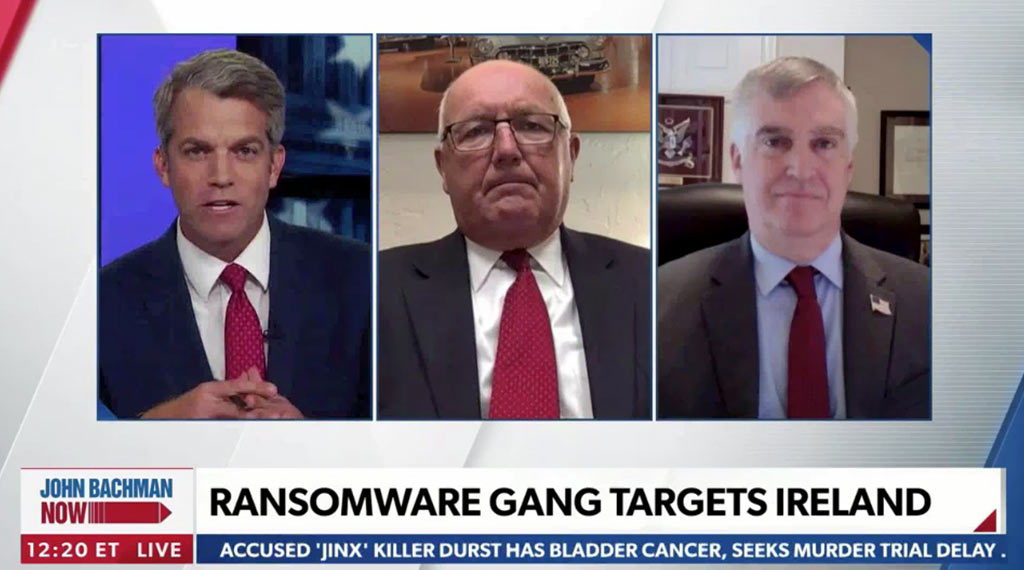
By Pete Hoekstra | Gatestone Institute | August 2, 2021
- Rather than developing into a new marketplace of open competition among ideas and ideologies, the social media space has narrowed. Thought regulation, and even censorship, whether overt or hidden, has become commonplace. Too often, only “correct” opinion and the approved version of “truth” have been allowed. The arbiters of online speech — faceless corporate bureaucrats — frequently display outright political bias.
- The flag desecration votes demonstrate how vulnerable the concept of freedom of speech is. America’s Founders realized the potential tyranny of the majority and that is why they made it the First Amendment. They understood that freedom of speech is essential….
- We must not accept the new intolerance of corporate progressives. It is time to stand up to the social media titans of our age, the new robber barons, and put a stop to their aggressive attempts to control the marketplace of ideas.
Social media has undoubtedly become the dominant form of communication in our society. Sixty-eight percent of U.S. adults identify themselves as Facebook users. Statistics show that people on average spend 2.5 hours per day on social networks and messaging. Also, 49 percent “of consumers depend on influencer recommendations on social media.” Social media boosters claim that this success shows that Facebook, Twitter, Google, and other platforms are fulfilling their promise to help build an interconnected world of free expression and solidarity in diversity of thought. But is this true?
Many of us in the world of politics, and political discourse in particular, hoped that social media would form a new marketplace in which differing ideas and policy options could be promoted and debated freely. In recent months, however, it has become undeniable that the opposite is happening.
Rather than developing into a new marketplace of open competition among ideas and ideologies, the social media space has narrowed. Thought regulation, and even censorship, whether overt or hidden, has become commonplace. Too often, only “correct” opinion and the approved version of “truth” have been allowed. The arbiters of online speech — faceless corporate bureaucrats — frequently display outright political bias.
Recently I warned that the censors might soon come for you and me. Now it has happened. Two organizations that I am linked to have been censored by social media. The first is the Gatestone Institute, a right-leaning, non-partisan international policy council and think tank, for which I occasionally write articles. The second is the Michigan gubernatorial campaign of Tudor Dixon, a grassroots Republican activist challenging incumbent Governor Gretchen Whitmer. Though I have not endorsed any of the candidates for the gubernatorial race in Michigan where I live, I was dismayed to learn Ms. Dixon was being punished for the “crime” of publishing poll results that showed declining public support for Governor Whitmer.
How far we have regressed. When I reflect on the threat to free speech that we are experiencing today, I cannot help thinking of the debates that took place in Congress regarding the burning of the American flag. During my tenure as a member of the House of Representatives, multiple votes were held on a constitutional amendment that would have allowed legislation restricting the desecration of the flag. Majorities in both houses of Congress voted to restrict this form of speech, but it never achieved the supermajority necessary to move the process forward. Freedom of speech narrowly won.
When the right to free speech was called into question, strong arguments defending freedom of speech were made. The ACLU, for example, opposed the flag desecration amendment because:
- “It is injurious to one of the freedoms the flag symbolizes, free speech;”
- “Freedom cannot survive if exceptions to the First Amendment are made when someone in power disagrees with an expression;” and
- “It may provoke … the very acts it purports to curtail”
The Minority views from the House Judiciary Committee Report on H.J. Res. 79 in the 104th Congress on Flag Desecration includes powerful perspectives that underline the dangers of censorship and suppression of ideas. For example, it quotes a fundamental justification of free speech that Supreme Court Justice Oliver Wendell Holmes wrote in 1919:
“the ultimate good desired is better reached by free trade in ideas … the best test of truth is the power of thought to get it accepted in the competition of the market.”
In the same vein, the Minority views reference John Stuart Mill:
“but the whole truth; unless it is suffered to be and actually is, vigorously and earnestly contested, it will by most of those who receive it, be held in the manner of a prejudice.”
The flag desecration votes demonstrate how vulnerable the concept of freedom of speech is. America’s Founders realized the potential tyranny of the majority and that is why they made it the First Amendment. They understood that freedom of speech is essential, and that America is not America without freedom of speech. While I vehemently oppose burning our flag, I understand doing so is a form of speech and expression. I do not have to agree with it to support its protection under the First Amendment of our great Constitution.
Just as I fought and voted against the Flag Desecration Resolution in 1995, I will fight for Tudor Dixon’s right to promote her ideas to the people and make her case to be the next governor of Michigan. The Gatestone Institute has a First Amendment right to publish its views on international policies. If you do not agree with Tudor or Gatestone then challenge them, do not censor them.
We must not accept the new intolerance of corporate progressives. It is time to stand up to the social media titans of our age, the new robber barons, and put a stop to their aggressive attempts to control the marketplace of ideas.



